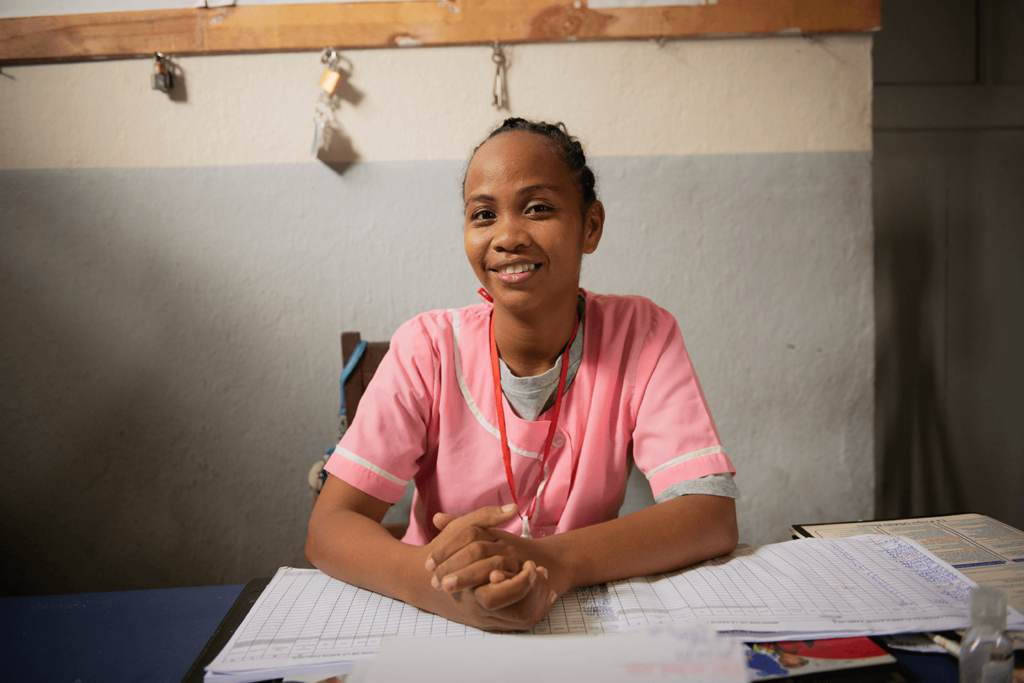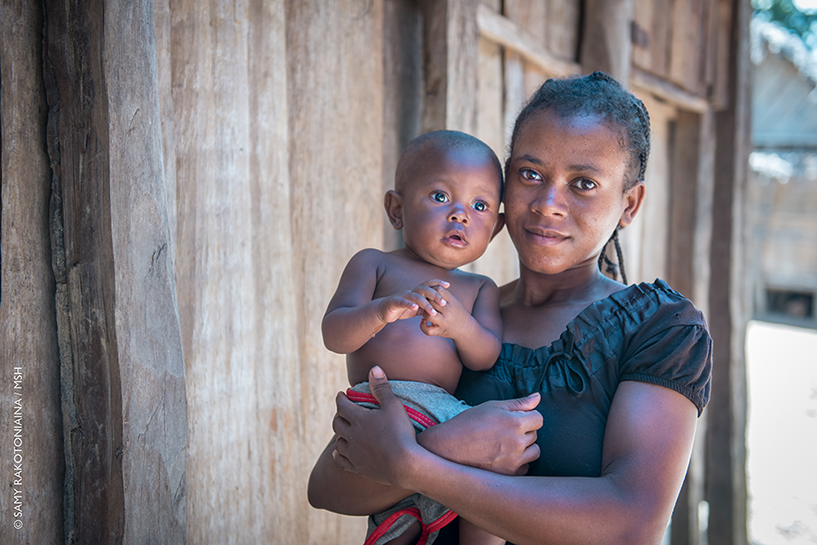Midwives Improve Access to Family Planning Services in Madagascar
Midwives Improve Access to Family Planning Services in Madagascar

“Rasazy Mino, the midwife at Mananjary’s primary health center, introduced me to family planning methods. I have never changed providers because she inspires me with confidence and knows how to put me at ease while remaining very professional.”
– Meva, 19 years old

In 2018, Madagascar enacted a new family planning law allowing youth to seek family planning services without parental consent. However, young couples still face major obstacles accessing these vital services due to a lack of availability, persistent cultural and religious beliefs, and minimal information about available options.
Training and empowering midwives to provide contraceptive services, particularly to Malagasy youth, is a key to overcoming these challenges. Here’s how the many midwives, supported by the USAID-funded ACCESS program, are playing this critical role.
In many communities, midwives are often the only health providers delivering family planning counseling and services. Qualified midwives are trained to deliver voluntary family planning services while offering informed choices for clients, especially young couples.
To support the Ministry of Public Health, the USAID-funded ACCESS program works to improve maternal and child health in Madagascar. And training is one of the most important ways we ensure sustainability of maternal and child health. Staff mentors from ACCESS receive extensive training in clinical care, including a full range of family planning methods, so that they are fully prepared to pass those skills on to health care workers and midwives.
USAID ACCESS’s mentorship and training specialists help midwives build up their technical skills and teach them how to develop trust with their patients. For family planning, mentoring work is focused on improving the quality of services by humanizing health care during counseling and perfecting medical procedures through practical sessions and clinical simulations.
In rural Madagascar, the nearest health center can be far away. When patients come to a health center, health workers have to make the most of their visit and provide a range of services all at once, including those around nutrition and vaccinations. For family planning, midwives counsel their patients, help them choose the method that is best for them, and help them make informed choices on the timing and spacing of their pregnancies.
Midwives offer a range of different family planning options, including long-lasting methods such as intrauterine devices and implants and short-acting hormonal methods such as pills and Depo-Provera injections. They also provide barrier methods, information on natural methods, and refer patients who want permanent methods to a doctor.
The COVID-19 pandemic has forced much of the country into lockdown and social isolation. These conditions can restrict access to services and prevent some patients from seeking care and information. But Malagasy midwives have stayed on the front lines and are continuing to provide family planning services to ensure healthy families and promote planned pregnancies.
To maintain essential health care services during the pandemic, midwives reinforced the need for infection prevention and control guidelines to protect themselves and their family planning clients. Overall, midwives provide skilled care and reliable services that can ultimately save lives.
Midwives play a major role in promoting modern contraception in primary health centers and district hospitals across Madagascar. Moreover, many of them literally go the extra mile with mobile outreach clinics to serve those most isolated communities. The USAID ACCESS program, led by MSH, works closely with Madagascar’s Ministry of Public Health to equip these midwives with the tools and skills they need to deliver high quality family planning services, ultimately empowering women and helping youth reach their full potential.